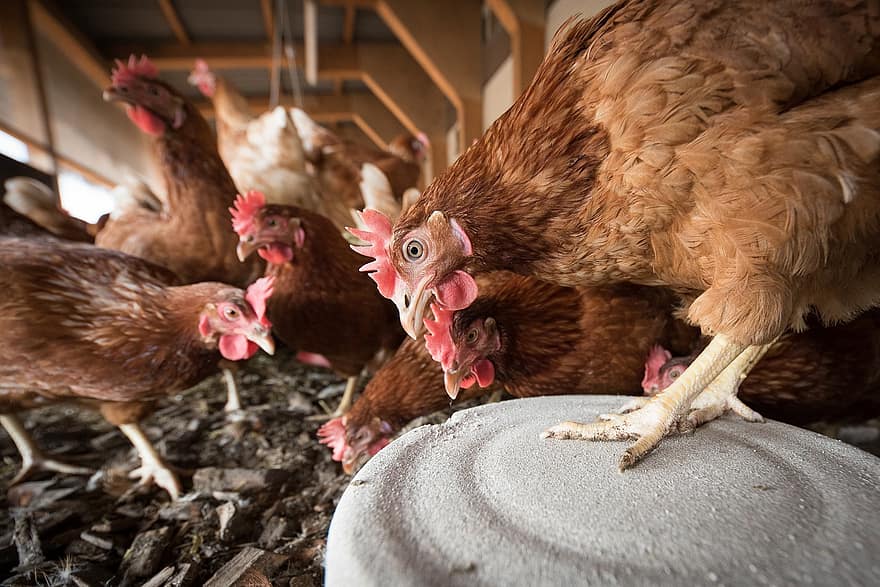A commission set up to advise the government on maintaining “animal welfare and environmental standards” in post-Brexit trade deals includes two leading figures from a pro-deregulation thinktank known to offer “intimate” access to UK ministers for US agribusinesses.
Shanker Singham and Sir Lockwood Smith from the libertarian Institute of Economic Affairs have been named members of the commission. Singham’s association with the IEA was initially listed on the government website before being removed, with Smith’s affiliation not listed at all.
The 16-person Trade and Agriculture Commission contains five farming union representatives and will make recommendations to International Trade Secretary Liz Truss as the UK negotiates new trade agreements with countries such as the US.
‘Cash-for-access’
In 2018, the IEA and its Director General, Mark Littlewood, were caught in a “cash-for-access” scandal following an undercover investigation by Greenpeace’s investigative unit Unearthed. A reporter posing as a US agribusiness lobbyist was offered “intimate” access to UK ministers in return for funding an IEA report. The IEA denied any wrongdoing.
Shanker Singham is an International Trade and Competition Fellow at the IEA. He is reportedly known around Westminster as the “Brexiteers’ Brain” and enjoys close relationships with senior Brexit ministers.
Singham was part of a five-person “committee of experts” advising former International Trade Secretary Liam Fox but was forced to resign due to his role as an advisor to the PR and lobbying firm Grayling, which Department of Trade officials saw as a “potential conflict of interest.”
Like what you’re reading? Become a DeSmog patron today!
Singham’s association with the IEA was initially included in the government’s press release about the launch of the commission. But his affiliation has since been changed to state that he is representing his private consultancy, Competere. The company’s website states that it advises “governments and companies” on “trade law and economic policy” but does not provide details about its clients.
Also on the commission is Sir Lockwood Smith, a member of the IEA’s International Trade and Competition Unit Advisory Council and a former New Zealand Minister of Trade and Minister of Agriculture. Smith was also the New Zealand High Commissioner to the UK between 2013 and 2017.
An IEA spokesperson said neither Singham nor Smith were employees of the thinktank and had not joined the commission “in an IEA capacity”. She said the thinktank had “no corporate position on policy matters” and “no individual represents the “position” of the IEA”.
Lowering standards
The IEA has pushed for a “hard” Brexit along with a number of other groups based in and around 55 Tufton Street and called for an end to “restrictive” standards on food and agriculture in the UK. Recent YouGov polling suggests a large majority of the British public oppose a US–UK trade deal that lowers food standards.
In July 2018, the IEA launched an “alternative” plan for a post-Brexit UK–US trade deal, authored by Singham and developed in consultation with a number of free-market US think tanks, which called on the government to cut regulations to secure free trade deals. The report, backed by high-profile Brexiteers including Boris Johnson, Jacob Rees-Mogg and David Davis, was later withdrawn, before the Charity Commission censured the group for breaching neutrality guidelines.
Liz Truss, who the commission will advise, has close ties to the IEA, having founded the “Free Enterprise Group” of MPs, which is administered by the IEA and has been described by openDemocracy as the group’s “parliamentary wing”. Truss held undisclosed meetings with Singham and IEA Director General Mark Littlewood in 2018 while Chief Secretary to the Treasury. She also met with a group of US-based libertarian groups with a history of climate science denial during a taxpayer-funded trip the same year.
The commission has already sparked controversy, after its Chair Tim Smith wrote a comment article in the Telegraph calling concerns about the import of chlorinated chicken and hormone-fed beef “alarmism” on the day of its launch. The Department for International Trade shared the article from its Twitter account. Smith is a former Group Quality Director at Tesco and former CEO of the Food Standards Agency.
Under-represented
Concerns have also been voiced over the lack of representation of environmental organisations on the commission, with the Greener UK coalition of major green groups saying its membership raised “serious questions over its ability to address environmental issues”.
“Without big improvements this commission will be little more than a fig leaf for the government’s continued failure to commit in law to banning substandard imports,” Greener UK’s Sarah Williams said.
The only environmental group to be represented is LEAF, whose advisory board contains government officials from the Environment Agency and the Scottish Environmental Protection Agency. The group enjoys the support of a broad spectrum of NGOs, retailers and businesses, spanning from the RSPB and the Woodland Trust to agrochemical giants Corteva, BASF, Bayer and Syngenta.
LEAF’s Chief Executive, Caroline Drummond, told DeSmog the organisation was a reasonable choice to represent green groups given its role “as one of the leading sustainable food and farming organisations in the country” and its focus on “the importance of standards for some three decades”.
She said she was proud of LEAF’s record of partnering with numerous companies and organisations and described it as “without a doubt an independent organisation”.
Drummond said LEAF would use its role on the Commision to speak up for “fairer trade deals that recognise the high environmental standards that UK farmers deliver”.
Former Chief Veterinary Officer Nigel Gibbens is on the commission, but it has nonetheless been criticised by the RSPCA for a lack of animal welfare organisations being involved.
The commission will run for six months and submit an advisory report at the end of this period, to be presented by the Secretary of State to parliament.
Updated 15/07/2020 to include a response from the IEA.
Photo credit: Pikist
Subscribe to our newsletter
Stay up to date with DeSmog news and alerts






